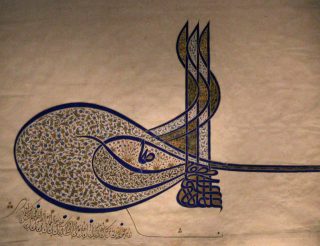Distinctive Traits of the Islamic System of Inheritance
By Mufti Taqi Uthmani
Translated by Muntasir Zaman
Islamic law has put in place a fair and wise system of inheritance. The Qur’an and Sunnah have meticulously elucidated the subject without leaving it to human reasoning, which is unable to fully grasp the profound wisdom only encompassed by Allah Most High. We, therefore, find that the Islamic laws of inheritance part ways with other religions and legal systems from many angles. These distinctive traits are encapsulated in the following principles laid down by the Shari’ah.
leaving it to human reasoning, which is unable to fully grasp the profound wisdom only encompassed by Allah Most High. We, therefore, find that the Islamic laws of inheritance part ways with other religions and legal systems from many angles. These distinctive traits are encapsulated in the following principles laid down by the Shari’ah.
1. All assets of the deceased form part of the inheritance
The first principle in the Islamic system of inheritance is that all assets left by the deceased are inheritable be they of personal use, such as clothes and utensils, or items that accrue profit, such as land, merchandise, and money. According to Islamic law, inheritors are entitled to all of these items, small or large, valuable or cheap. Only three areas are excluded: finance for the burial process, debts, and the bequest, which caps at one third of the remaining wealth.
Prior to Islam, many societies would draw a distinction between perishable and profitable items. Accordingly, after the demise of an individual, only the second category would be handed over to the inheritors, such as land, shops, and money. On the other hand, items of personal use, like clothes, utensils, weapons, and adornments were not inherited. Some went as far as burying these with the deceased claiming the deceased needs them in the afterlife, others would gather these items in one place and set them alight, and yet others would divide them into three parts: a portion for the inheritors to keep in memory of the deceased, a second portion of clothing and adornments to be buried with the deceased, and a third portion for the expenses of the day of burial because hiring professional mourners was expensive. For more details on these rituals, one may refer to the section of inheritance laws in Encyclopedia Britannica.
These rituals led to the loss of wealth; valuable items were buried, burnt, or utilized to finance a professional mourner, all the while the immediate family of the deceased were in dire need of them. Islam prohibited such extremism and ignorance, by entitling the inheritors to all assets of the deceased – even something as inconsequential as a needle.
2.Inheritance is the right of the relatives, not of strangers
So long as the relatives of the deceased are alive, they alone are entitled to the inheritance. Some societies have given preference to the friends and neighbors over the relatives. As a result, the neighbors and friends would amass all the wealth, leaving the direct family deprived of his wealth after having already suffered the loss of his life; this is clearly an unjust practice. Islam upholds this principle to the point that even the adopted child is not allowed to inherit. Pre-Islamic Arab societies would allow for the adopted child to inherit, equating him to the biological son vis-à-vis inheritance. The Qur’an nullified this and established that as per Islamic law the only true child is one’s biological child.
3.Inheritance is the right of males and females, young and old
In pre-Islamic Arabia, women and children were not assigned a share of the inheritance. Only those who obtained the spoils of war or were able to combat on horseback were entitled, as reported by Ibn Jarir al-Tabari (d. 310; Allah have mercy on him) in his Tafsir. Islam abolished this oppressive practice, and Allah mandated the female’s right to inheritance in the verse, “For men is a share of what the parents and close relatives leave, and for women is a share of what the parents and close relatives leave, be it little or much – an obligatory share.”
In his Tafsir, Ibn Jarir al-Tabari narrates from ‘Ikrimah who said, “(This verse) was revealed regarding Umm Kahlah, the daughter of Kahlah, Tha’labah, and Aws ibn Suwayd, who were from the Ansar. One of them was her husband and the other was the paternal uncle of her son. She said, “O Messenger of Allah! My husband passed away leaving me and his daughter behind, yet we did not receive from his inheritance. The paternal uncle said, “O Messenger of Allah! She does not ride a horse, bear any burden, or fend of the enemy; she incurs liabilities and does not earn.” Thus, Allah revealed, “For men is a share of what the parents…”
4.Proximity is the basis of inheritance
The one closer to the deceased has a greater right to the inheritance. This principle is also applicable in the case of the ‘asabat; hence, the closer ‘asabah will block the farther one. This principle, however, is not always applicable in the case of the Dhawi al-Furud, but is taken into consideration in stipulating their shares. That being said, a person does not block another in his category of proximity simply because of seniority, a known practice of the Christians which is unfair to the young children of the deceased, in which case, they are deprived from inheritance only because they were born after their elder siblings. Islam removed this oppression and placed equality between the children without discriminating based on age.
It is worth mentioning that an increased participation in inheritance is an effective method of preventing the hording of wealth, balancing the distribution of wealth, and curtailing the perpetual circulation of wealth solely among the rich. In Islam, all horded wealth will, therefore, eventually fall into the possession of multiple hands. This is in addition to Islam’s just system of inheritance.
5.Inheritance grants complete, unrestricted ownership
The Islamic system of inheritance mandates that inheritance confers complete, unrestricted ownership of one’s portion, as opposed to the system of the Hindus and some of the Greeks and Romans who adhered to joint family laws. According to them, land and properties are jointly owned by the members of the family; no member was able to sell their portion or separate it from the shares of others, which led to a number of complications. Based on this system, a person was often left in need of money (yet unable to sell his share) nor was he be able to utilize his rightfully owned share of inheritance.
Islam abolished these practices and demarcated each person’s share so that one may spend the wealth as one pleases. It is for this reason Islamic law encourages the distribution of inheritance as soon as possible after the passing of the deceased, because an abundance of partnership can lead to quarreling and enmity between the partners.
(Muft Taqi Uthmani, Takmilat Fath al-Mulhim, vol.2, pp.7-8)


